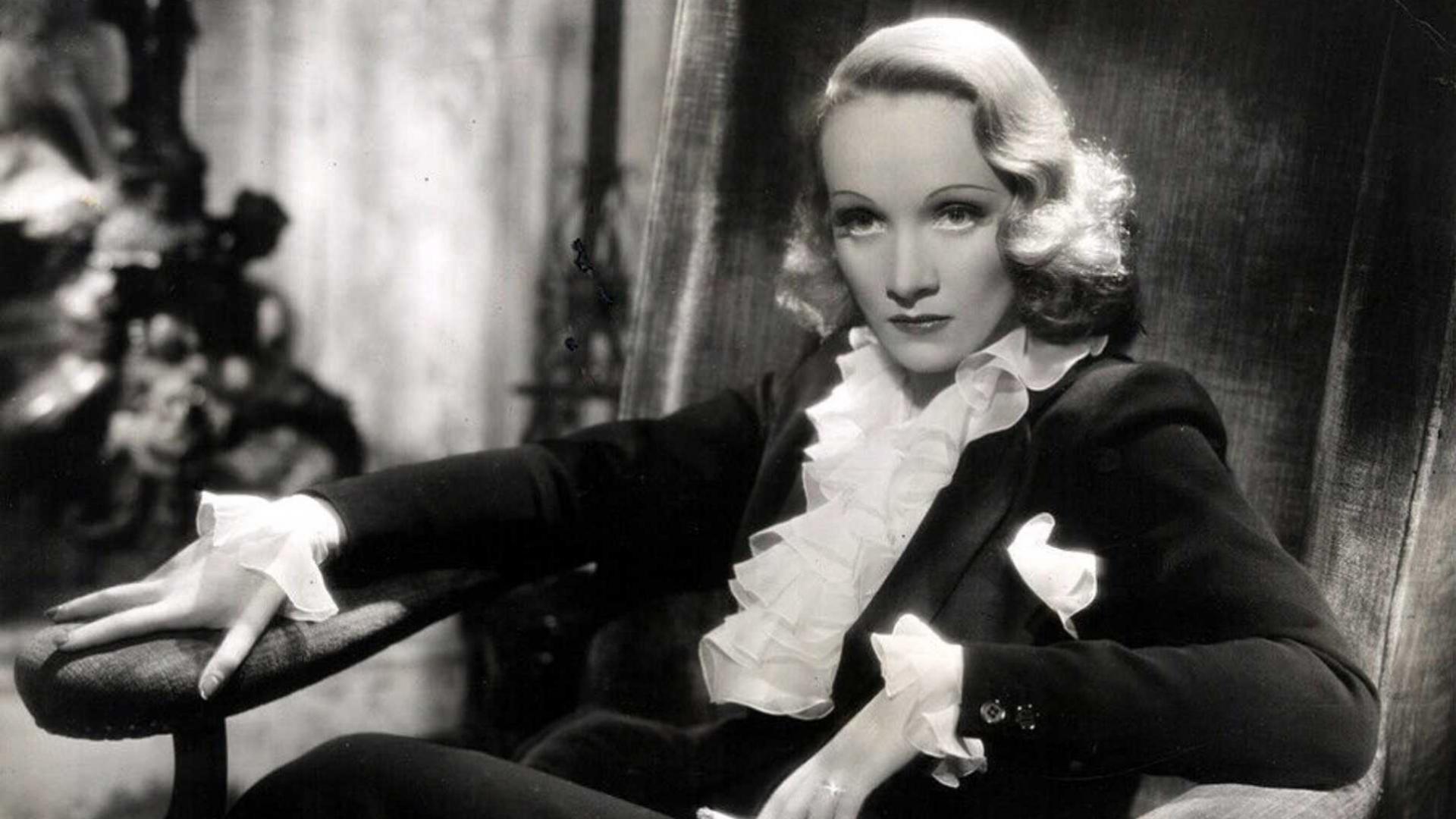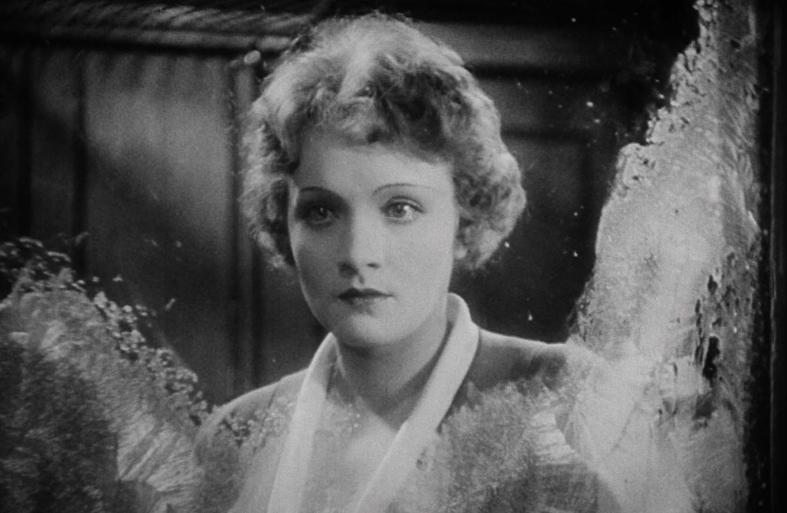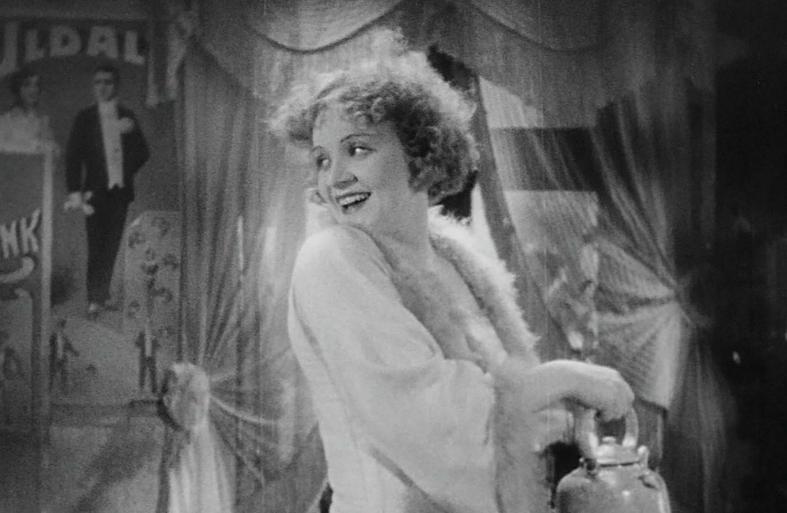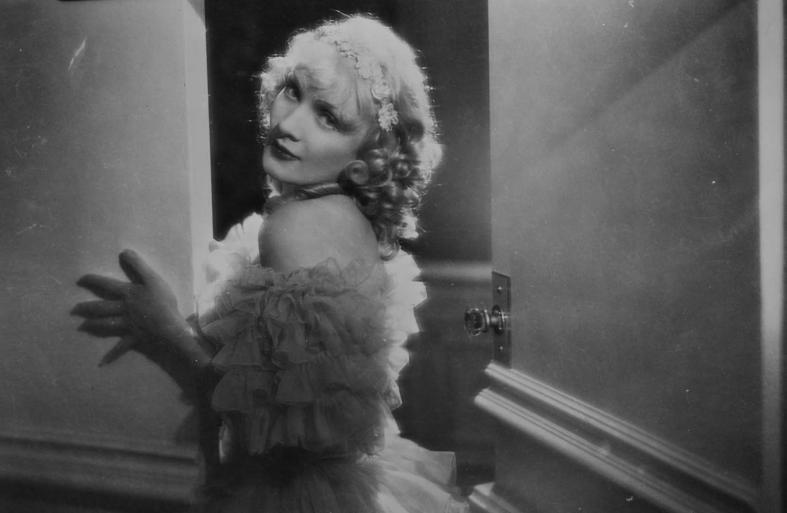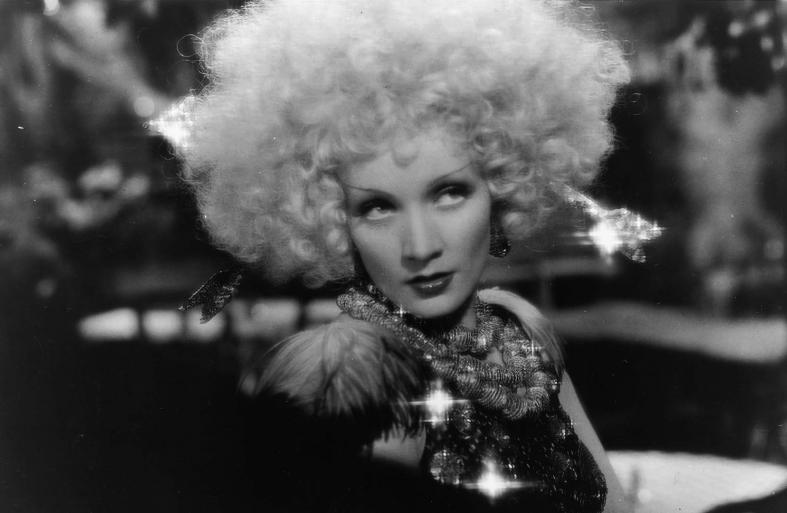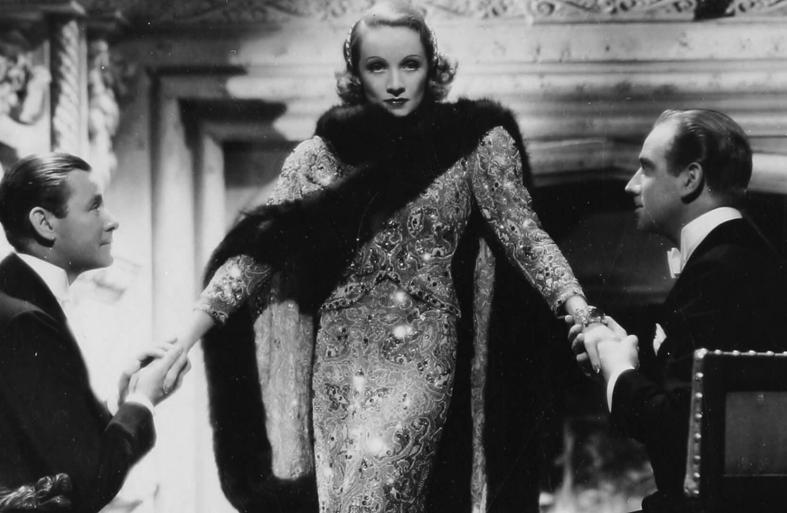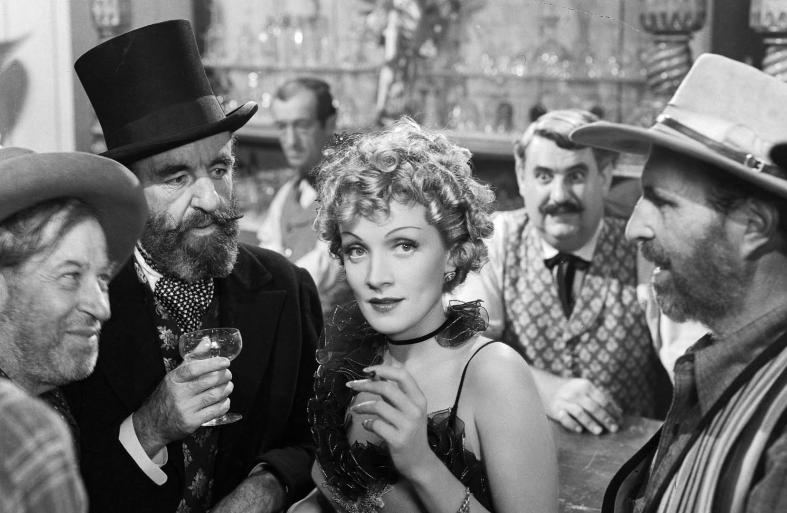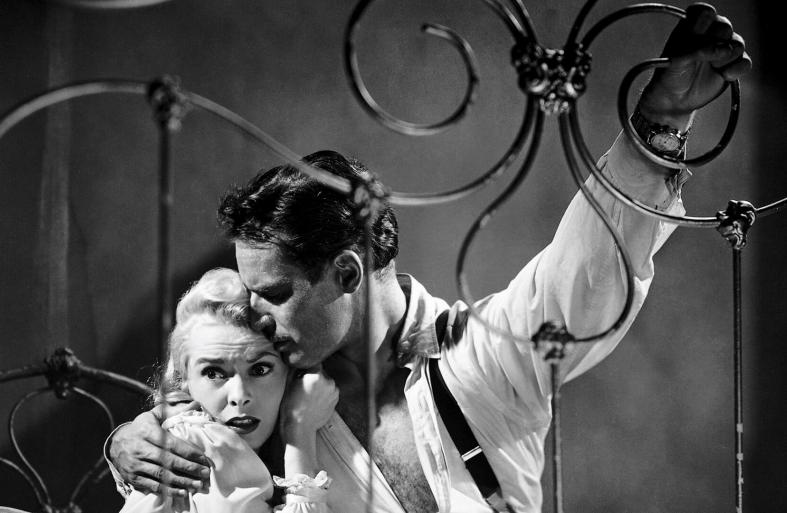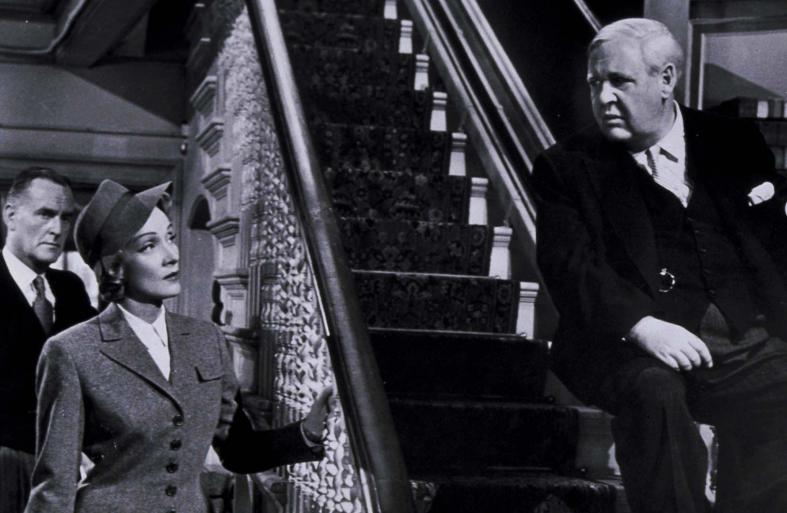Marlene Dietrich was born in Berlin in 1901, her music and acting career began at a young age and in her twenties - which went hand in hand with the Roaring Twenties of the Weimar Republic - she appeared in marginal roles. She was more successful when she combined acting and singing - with her low tone and dominant presence - in the musical genre. The big breakthrough came when she was "discovered" by director Josef von Sternberg. The collaboration between the two in the classic film "The Blue Angel" - together with famed actor Emil Jannings - made her an international star, and the two moved to Hollywood.
Here she continued to work exclusively with von Sternberg for much of the 1930s, resulting in six works. Von Sternberg designs Dietrich as a bright, captivating, and strongheaded woman. He puts a lot of thought into the image and uses milky and contrasting lighting that highlights her body and face's features to a sensual and dramatic effect. Thus, even if the films' plots are melodramatic and the scripts have a bite - the images devised by von Sternberg and Dietrich are tremendous and considered classics even today.
Dietrich was supposed to be Paramount Studios' answer to Greta Garbo and she knew how to maximize her image to get better contracts during her first star years in Hollywood. Yet for the cinema owners, she was defined as "box office poison," with films that failed to attract audiences. At the end of the 1930s, after a series of disappointments, she returns to the screen with "Destry Rides Again," an interesting western starring James Stewart, and the combination of the "sinful" Dietrich and the "good" Stewart, becomes a great success.
When the Second World War broke out, Dietrich devoted herself to the good of her new homeland. She establishes a fund to support refugees, and joins the the war effort of the Allies in raising bonds and performing in front of the soldiers on all fronts, culminating in her arrival in ruined Berlin.
Following the War she continued to appear in the cinema but at a decreasing rate. She has supporting roles with some of the most renowned directors: Billy Wilder ("Foreign Affairs", "Witness for the Prosecution"), Alfred Hitchcock ("Stage Fright")ת and Orson Welles ("Touch of Evil"), but she devotes most of her time to the stage, starring in Las Vegas and London and later around the world (she also came to Israel in the early 1960s, and in her performance, she broke the ban on the German language when she sang several songs in her mother's tongue).
30 years have passed since Dietrich died, but it seems that her charm is unmatched. Her face's sharp lines, the foreign accent, the ability to express passion with cold looks, and the strong femininity - almost masculine - which gave her presence a degree of attraction and hesitancy - all contributed to her tremendous charisma. But mostly, Dietrich brought a measure of self-awareness and irony to her performances. In every film, in every performance, you can feel the way Dietrich almost winks at the camera and through it, to us the viewers, reassuring us with a half smile.
Two months ago, in June 2024, a tribute to Dietrich was held at the major classic cinema festival in Bologna under the title "Marlene Dietrich – Cinema Disrupted" (MARLENE DIETRICH – CINEMA DISRUPTED) dedicated to Dietrich's role in films and beyond. The definition of Dietrich as a disruptive character captures her essence as someone who always pierces the familiar and diverts it from its course, bringing to the screen time after time, an independent woman, who insists on controlling her life and the people who pass through it. Dietrich was known for this ability in her personal life as well - both in her political activity during the War and as a star who was not ashamed of her sexuality and had many relationships with men and women. The disruption that Dietrich proposed was ahead of its time and is still thrilling and surprising. This month's program is a wonderful opportunity to enjoy one of the great icons of the twentieth century.
This program opens the events of the centenary of the birth of Lia Van Leer, the founder of the Cinematheque. In 2004, when Lia received the Israel Award, the Cinematheque held a small tribute in her honor that included some of her favorite films, one of which was "The Blue Angel," from which we decided to hold the Dietrich tribute. In the coming months, we hope to have similar tributes to some of the filmmakers who appeared on the list.
